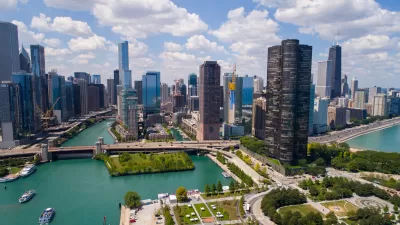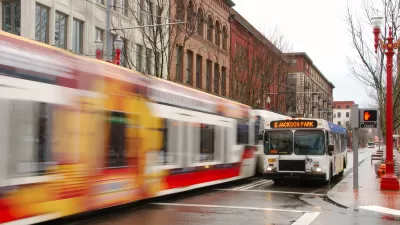Triple Canopy interviews architectural historian Kazys Varnelis about the importance of city data, the difficulty of building new infrastructure and how best to react to a stiflingly complex society.
"Triple Canopy: You've argued that it's no longer possible to rebuild existing infrastructures or, for that matter, to build better ones. And you've proposed 'social engineering' and 'human hacking' as keys to changing how we think of and how we use infrastructure. On the other hand, a quarter of the counties in Michigan are converting paved roads to gravel to save money. Do you still believe in the prospect of technology enabling us to salvage our increasingly chaotic, dilapidated built environment?
Kazys Varnelis: I've been thinking about this a lot lately. On the one hand, I still believe that a government initiative to bring infrastructure into the twenty-first century by opening data to everyone-not just leaving it in the hands of the technocratic elite-would make things better for everyone. We can see this in the ability to monitor traffic conditions in real time on Google Maps. If there is a jam in a certain area, our navigation system should route us around it.
But as I've been studying such possibilities over the past year, it's become clear to me that there's a danger to putting too much faith in the bottom-up model. During the past decade, there's been a lot of fascination with bottom-up forms of organization. If these work at certain levels, they don't work at others. In particular, they are unable to provide adequate structures of authority. This has been the typical lesson of revolutions: In the process of creating new governments, the revolutionaries fail or resort to authoritarianism."
FULL STORY: The Wrong Way Forward

Maui's Vacation Rental Debate Turns Ugly
Verbal attacks, misinformation campaigns and fistfights plague a high-stakes debate to convert thousands of vacation rentals into long-term housing.

Planetizen Federal Action Tracker
A weekly monitor of how Trump’s orders and actions are impacting planners and planning in America.

In Urban Planning, AI Prompting Could be the New Design Thinking
Creativity has long been key to great urban design. What if we see AI as our new creative partner?

King County Supportive Housing Program Offers Hope for Unhoused Residents
The county is taking a ‘Housing First’ approach that prioritizes getting people into housing, then offering wraparound supportive services.

Researchers Use AI to Get Clearer Picture of US Housing
Analysts are using artificial intelligence to supercharge their research by allowing them to comb through data faster. Though these AI tools can be error prone, they save time and housing researchers are optimistic about the future.

Making Shared Micromobility More Inclusive
Cities and shared mobility system operators can do more to include people with disabilities in planning and operations, per a new report.
Urban Design for Planners 1: Software Tools
This six-course series explores essential urban design concepts using open source software and equips planners with the tools they need to participate fully in the urban design process.
Planning for Universal Design
Learn the tools for implementing Universal Design in planning regulations.
planning NEXT
Appalachian Highlands Housing Partners
Mpact (founded as Rail~Volution)
City of Camden Redevelopment Agency
City of Astoria
City of Portland
City of Laramie





























